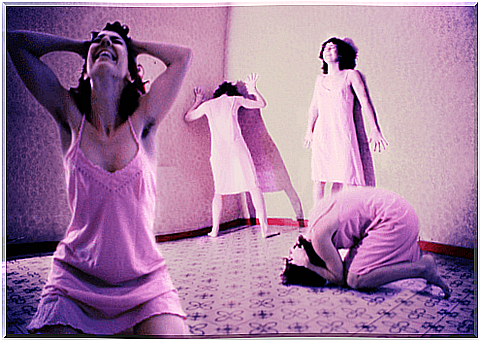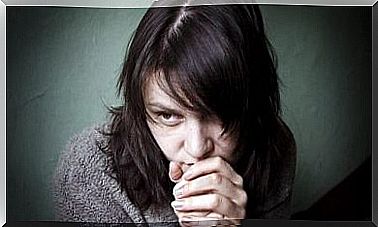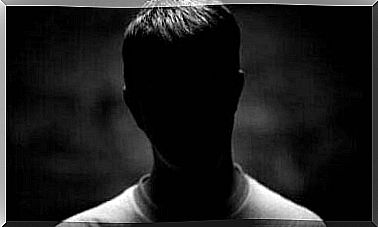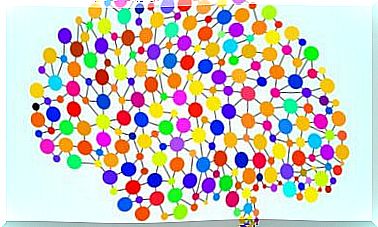How Does A Psychological Disorder Develop?

We are used to talking about the different psychological disorders paying attention to the symptoms that characterize them, but not much is said about how they develop. A mental disorder does not come out of nowhere and its symptoms are not random, on the contrary: each disorder forms a puzzle, the elements of which are logical and understandable.
What allows the development of a psychological disorder? What kind of predisposition must the mind possess? Is there a cause-and-effect relationship? Today we will talk about just that.
Psychological disorders
The psychological disorder, otherwise known as “mental illness”, supposes an alteration of the behavior and reasoning faculty of an individual. This disorder, in some cases, does not allow you to lead a normal life and requires constant treatment. We speak of a disorder, when the problem limits the life of the person affected by it and turns into a maladaptive and destructive cause.
There are several psychological disorders ; the most common are the following:
- Schizophrenia : when we hear voices that others do not hear and that, very often, incite us to do things.
- Autism : it is more common in boys than in girls; it is characterized by a development deficit that renders the individual unable to communicate, imagine or plan.
- Bipolarism : causes exaggerated emotions taken to the extreme. For example, the individual is delighted and suddenly plunges into a state of maximum depression.
- Personality disorder : it is a set of problems that involve the emotional, affective and social dimension. The best known are Antisocial Personality Disorder and Borderline Personality Disorder.
- Eating disorder : when the mind distorts what the individual sees; in this case, the body.
- Attention deficit and hyperactivity disorder (ADHD): it is common in children and is characterized by the difficulty of concentrating and controlling one’s own behavior.
- Panic: this is a very limiting type of disorder; it is the physical manifestation of fear (palpitations, difficulty in breathing, etc.).
- Anxiety: This disorder encompasses three other “sub-types”. There is talk of obsessive-compulsive disorder (OCD), post-traumatic stress disorder (PTSD) and generalized anxiety disorder (GAD).
The development of the disorder
After having seen the most common ailments, it is good to ask “what happens in our mind for a disorder to appear? Why do some people develop these pathologies and others don’t? “
The trauma
At the beginning of a psychological disorder there is a trauma. A traumatic event experienced in childhood (mistreatment, violence, abuse) can leave indelible traces that will have repercussions in adult life and, sometimes, even until the end of days. There is no specific age at which trauma appears, but it can certainly lead to eating disorders, panic, anxiety or other. Sigmund Freud said : “Traumatic events dating back to childhood are found in the unconscious and can become evident at any time and at any age. The conscious manages to associate traumatic situations of childhood with everyday circumstances of adult life and this causes a psychological disorder to develop. “
In this sense, psychoanalysis has a lot of merit: thanks to it, there has been a real revolution in how to treat disorders and the importance that internalized patterns play in our brains at an early age has been re-evaluated. Thanks to this step, currently, there are perspectives such as NLP (Neuro-Linguistic Perspective) which are based on the presence of such schemes to carry out interventions.
Genetics
Some disorders develop due to genetics. This does not mean that if someone in your family has suffered from schizophrenia or depression, then surely you will develop it too, but there is a better chance that this will happen.
This can especially happen with the following disorders: autism, attention deficit hyperactivity disorder, bipolarism, depression and schizophrenia.
As we have said, this does not necessarily imply that we will develop a mental disorder if someone in our family has been affected. There are many factors that come into play and they are not the same for everyone.
Environmental factors
There are some environmental factors that can trigger the development of a psychological disorder. For example, the death of a loved one can lead to a psychotic attack through stress. The same effect can be triggered by a divorce or drug use.
In young people, socio-cultural expectations can give rise to disorders such as eating disorders. Constant advertising, which dictates a certain canon of physical and aesthetic perfection, aggravates the problem, increases the incidence and expands the age group at risk.
As we have seen, there are various factors that contribute to the development of a psychological disorder. Other elements that can favor the development of these disorders are: infections, brain damage or lesions already present at the time of birth.









